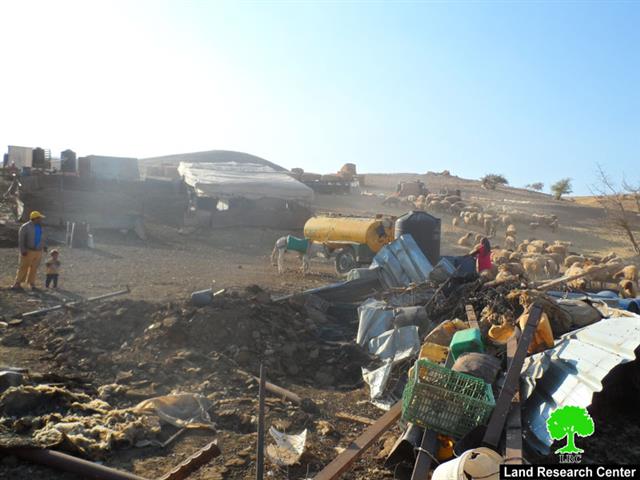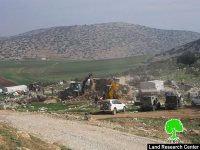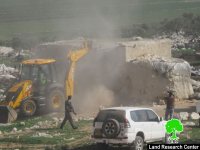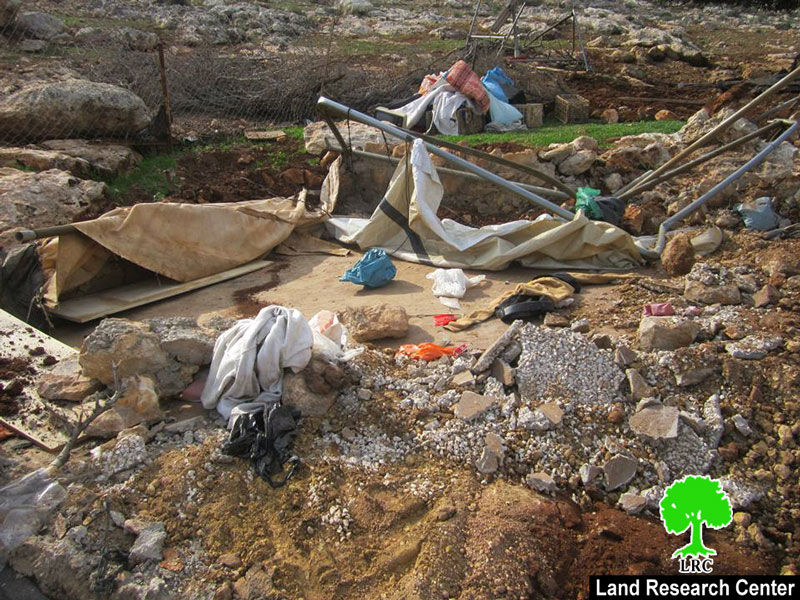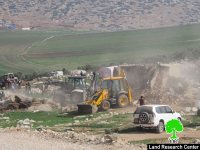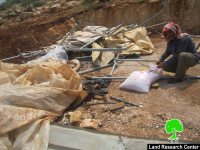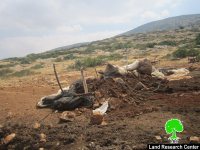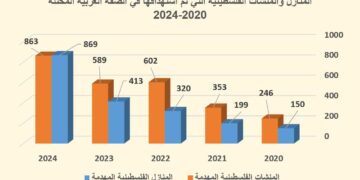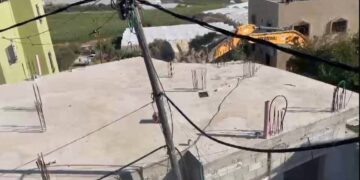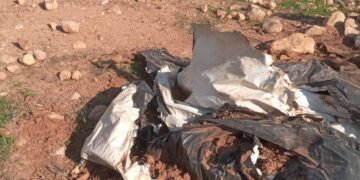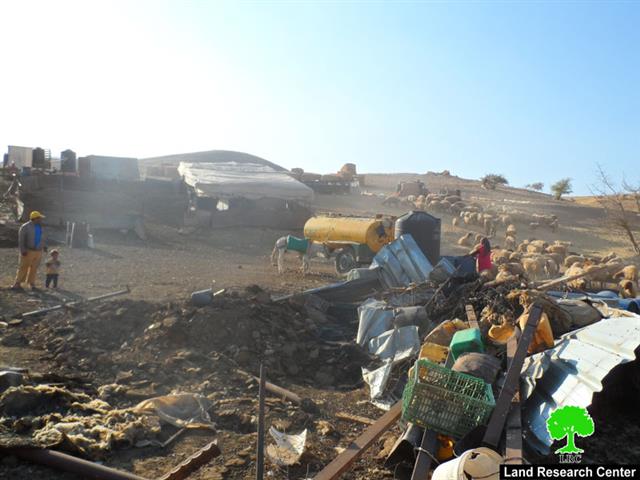Violation: Demolition of 20 agricultural and residential structures in the northern part of the Jordan Valley
Location: Khirbet Yarza and Khirbet Ibziq, Tubas governorate
Date: 22/01/2014
Perpetrators: The Israeli occupation army
Victims: 10 families that consist of 75 people, including 43 children
Details:
A new crime perpetrated by the Israeli occupation has been added to the record of a long series of attacks aiming at forcing Bedouin communities out and taking full control of the Jordan Valley.
On Wednesday morning of January 22, Israeli occupation forces riding two military bulldozers raided Khirbet Yarza, east of Tubas where the heavy machines embarked on a large-scale demolition operation without even given the residents a chance to salvage the furniture while the Israeli occupation justified the action by claiming that the people had received a demolition order under the pretext of unlicensed construction.
The Israeli occupation leveled 3 houses built with metal slabs and sackcloth in addition to 9 shacks and barns, 3 warehouses and destroyed half a ton of fodder. The demolition operation rendered 7 Bedouin families that consist of 75 people, including 32 children, homeless.
Mr. Mukhallis Masa'id, head of Yarza Bedouin community, stated to an LRC field researcher: "The Israeli occupation does not acknowledge Khirbet Yarza and seeks to tear it down. Since the end of 2013 and the beginning of 2014, the community has been targeted no less than eight times. Even the mosque of Yarza was destroyed several times. Yet, the people here are steadfast and manage to rebuild what is destroyed and carry out projects to revive the community."
Khirbet Ibziq was not spared either…
On Wednesday, January 22 and within the same context, the Israeli bulldozers embarked on leveling two residences built of sackcloth and metal slabs as well as 6 barns and shacks, and a warehouse under the pretext of lacking a building permit in Khirbet Ibziq, north of Tubas.
Not only that, the Israeli occupation also tore down a house built with stones and clay. The house was built in 1958, i.e. before the Israeli occupation. It should be marked that the demolition took place without any prior warning or order. The house is considered among the archaeological and ancient sites that the Israeli occupation is not allowed to destroy according to the international conventions that prohibit the destruction of any civil institutions built before the arrival of the occupation.
Head of the village council of Al Maleh and Bedouin Communities in north Jordan Valley, Mr. Aref Daraghmeh, told an LRC observer that:
"The Bedouin community of Ibziq is considered among the most targeted by the Israeli occupation. In less than one year, 60 agricultural and residential structures were leveled to ground, not to mention the demolition and eviction threats. The Khirbet is also a place for Israeli military trainings."
Yarza in lines:
Khirbet Yarza is 10 kilometer east of the West Bank city of Tubas. It is a small Bedouin community located in the heart of the northern parts of the Jordan Valley and inhabited by 12 families (100 people) who work in agriculture. They cultivate the agricultural lands of Yarza, estimated to be 25, 000 dunums in area, including 283 dunums classified as old area inhabited by population. It is worth noting that 75% of Yarza is owned by Palestinians that have Jordanian deeds that prove their ownership. But due to the fact that it has always been targeted by Israeli occupation forces in a sustained effort to uproot it and use its lands for further colonial expansion under a number of pretexts, many inhabitants of Yarza sought other places. None of the structures in the Khirbet (including houses, animal sheds, etc) have been spared Israeli-issued demolition orders under the pretext of being present in “Military Closed Areas”. In the face of this sustained eviction policies, the 70+ residents of the Khirbet insisted on staying put in their lands as to cut short the Israeli plans of their eviction.
Ibziq in lines:
Khirbet Ibziq is 8 km east of Tubas and it is a Bedouin gathering where its inhabitants lead a simple life, using wood to build their shelters and agriculture and sheep grazing as main sources of living. They lack the most basic of services as they do not have water nor electricity nets. According to the head of Khirbet Ibziq, about 123 people live there in addition to nomads who visit Ibziq during summer and spring in search of water and food for their sheep. Most of the Ibziq residents are originally from the 1948 occupied Palestinian lands.
Ibziq has a total area of 8000 dunums, 5000 of which are considered Jordanian property where Bedouins are not allowed to take advantage of due to the Israeli continuous attacks. The area is considered a closed military zone by the Israeli occupation. At the beginning of 2014, the Israeli occupation authorities issued a decision that prohibits Palestinians from using the lands within that area or zone.
Prepared by
The Land Research Center
LRC

